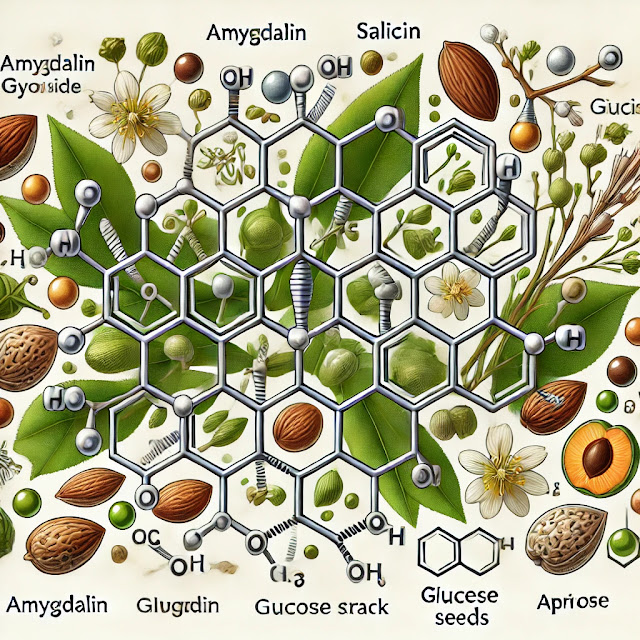Definition:
- Bitter glycosides are naturally occurring compounds found in various plants and are responsible for their bitter taste.
- These compounds consist of a sugar (glycone) linked to a non-sugar part (aglycone or genin), which typically imparts a bitter flavor.
Occurrence:
- Commonly found in plants belonging to families like Asteraceae, Rutaceae, and Gentianaceae.
- Plants like Gentiana lutea (gentian), Andrographis paniculata (kalmegh), and Citrus species (bitter oranges) are rich in bitter glycosides.
Chemical Nature:
- Bitter glycosides can be classified based on the structure of their aglycone into various types such as flavonoid glycosides, steroidal glycosides, and iridoid glycosides.
- The glycone part usually consists of sugars like glucose, rhamnose, or xylose.
Pharmacological Properties:
- Digestive Stimulants: Bitter glycosides enhance digestion by stimulating taste receptors, leading to increased saliva and gastric juice secretion. They are often used as bitters in herbal medicine to promote appetite.
- Cholagogues: They stimulate bile flow, which helps in digestion and detoxification.
- Liver Protection: Some bitter glycosides possess hepatoprotective properties, protecting the liver from damage.
- Anti-inflammatory: Certain glycosides show anti-inflammatory properties, helping in the treatment of various inflammatory conditions.
- Antimicrobial and Antioxidant: Some bitter glycosides also exhibit antimicrobial effects and scavenge free radicals, providing protective effects.
Examples of Bitter Glycosides:
- Gentiopicrin – Found in Gentiana lutea, used as a bitter tonic.
- Andrographolide – Present in Andrographis paniculata, known for its liver-protecting and anti-inflammatory properties.
- Sweroside – Present in Swertia species, used for digestive and liver disorders.
- Amarogentin – Found in Gentiana species, known for its intense bitterness and digestive benefits.
Therapeutic Uses:
- Appetite Stimulants: Used in cases of loss of appetite, dyspepsia, and sluggish digestion.
- Detoxifying Agents: Help in cleansing the body by stimulating liver and gallbladder function.
- Traditional Medicine: Used in Ayurveda, Traditional Chinese Medicine, and European herbalism for treating various ailments.
Toxicity and Precautions:
- While bitter glycosides are generally safe in therapeutic doses, excessive intake can cause gastrointestinal discomfort.
- Care should be taken with people who have stomach ulcers or hyperacidity, as bitter glycosides increase stomach acid production.
These notes provide a comprehensive overview of bitter glycosides, their sources, and their pharmacological significance.








0 Comments
Thanks for your feedback, i'll get back to you soon.